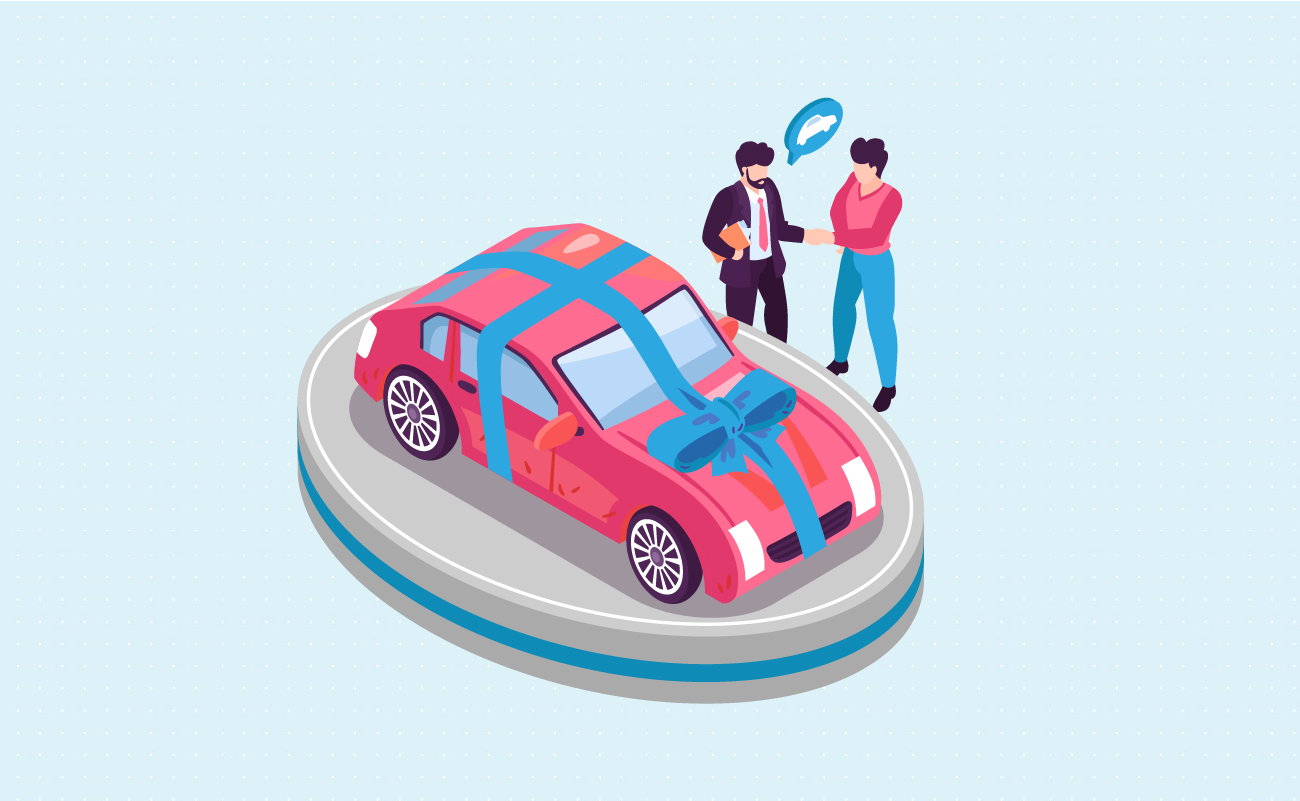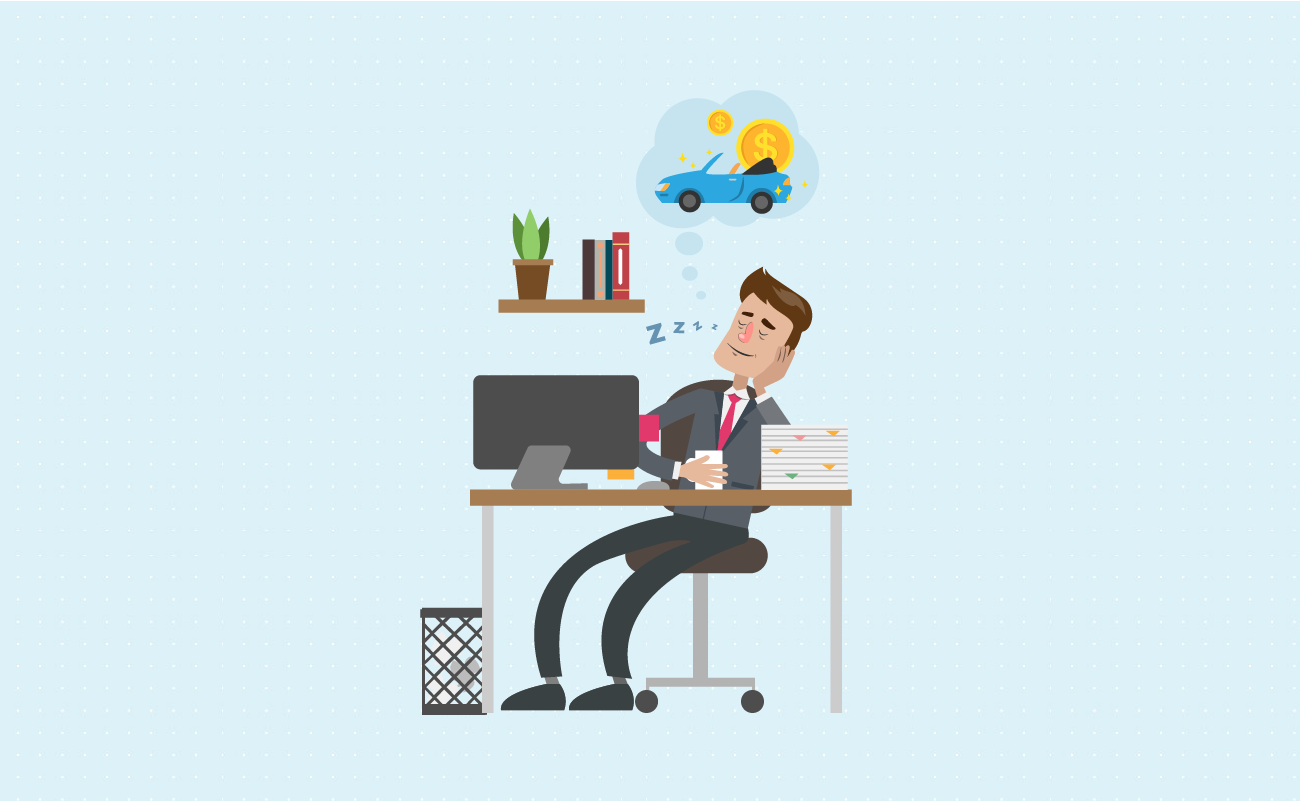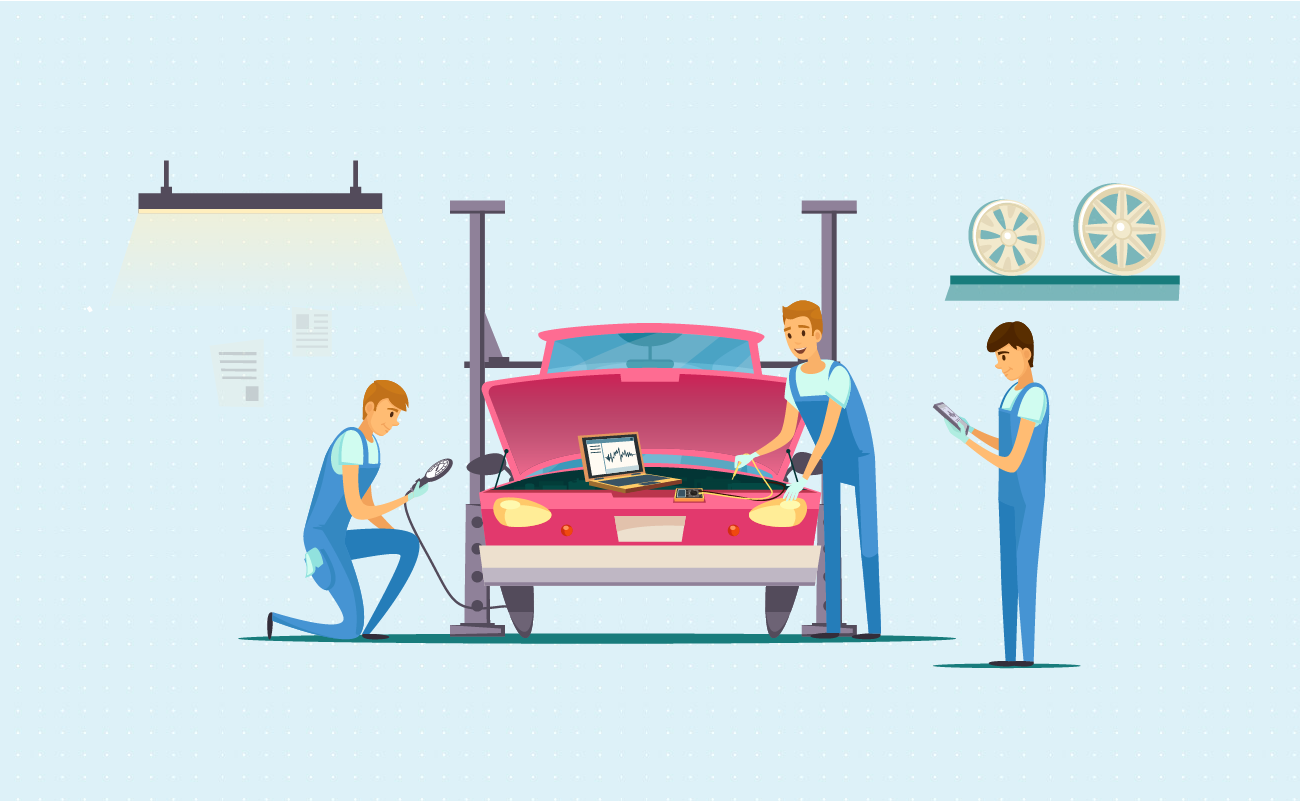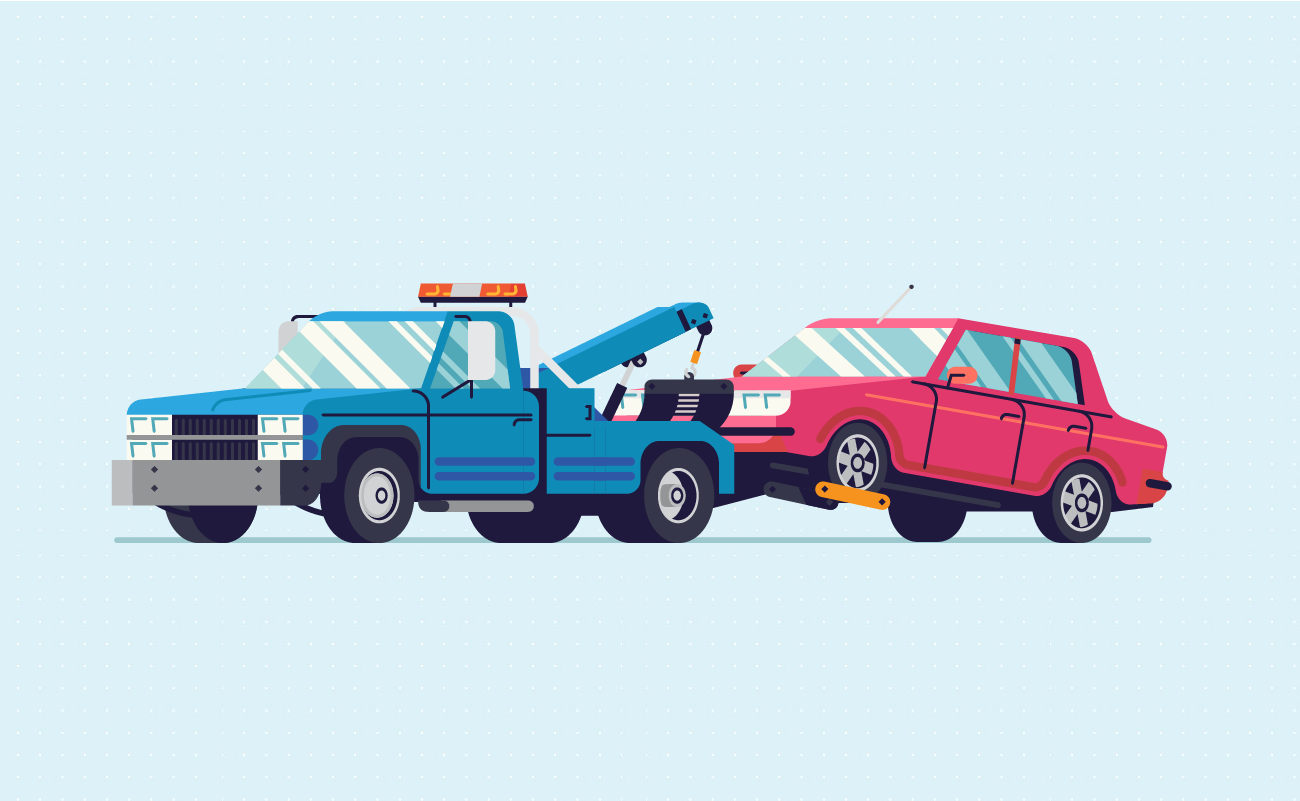Auto Loans
Affordability
Loan Payment Options
Biweekly Payments
Compare Rate & Term
Rebate vs Low Interest
Home Equity Loans
Lease or Buy
 Automobile Affordability Calculator
Automobile Affordability CalculatorThis calculator will help you to compute how much car you can afford given your current savings along with any trade-in credits. This calculator aims to be quite comprehensive, including other costs of vehicle ownership like fuel, insurance, and vehicle maintenance. If you wish to exclude these other variables then enter zero for the gas price, monthly insurance, and maintenance expenses.
Authored by Jose Abuyuan on June 10, 2020

Cars straddle the fine line between a need and a want. Obviously, a car is useful for a lot of things. But it can also be a status symbol. Few things are more impressive than rolling down the street in your own vehicle. And it's even more impressive if you paid for it yourself. Cars are also pricey, both to pay for and to maintain. Once you've factored that in, you'd think twice before getting a car solely for bragging rights.
Knowing whether you need to buy a car can be a difficult proposition. Are the benefits it provides worth the extra trouble and expense? Next, determine if you can add auto loan and maintenance payments to your budget. Once you've figured out the budget, the next step is picking the right car for your needs.
Let's get one thing out of the way. Cars are not an investment. They depreciate in value over time. Within a year of ownership, your car would have lost more than 20 percent of its original value. Unless it becomes a classic, your car will sell for less the longer you own it. But cars are a utility. The economic benefits of having a reliable car on hand cannot be stressed enough.
In a sense, cars are much like college education. You don't strictly need them. But the functions they fulfill add value to your life and career. The ideal car for your needs is one that makes your life easier.
Having access to a car increases how far you can go to look for work or do business. You can even get a side gig using the car itself by ride-sharing. A car also makes some everyday errands more convenient. Just weigh in your available options with care. Sometimes, what seems like a better deal might not always work in your favor. Listed below are the common arguments in favor (and against) car ownership:
| Pros | Cons |
|---|---|
| You own the vehicle and can use it at your leisure. You have no mileage limits. | Cars come with a hefty price tag. You often need to finance them through a loan. |
| You're not bound by someone else's schedule. | The costs of fuel, insurance, taxes, and maintenance all add up to the lifetime costs of the car. |
| You can carry heavier loads. This is vital for families and entrepreneurs alike. | You might be liable for damages when your car ends up in an accident. |
| You can sell or keep the vehicle as long as you want or need. | A car depreciates in value. That's money you're not getting back. |
| You can customize the car according to your tastes. | Choosing the wrong car or financing option could leave you with huge financial liabilities. |
Car dependence is the consequence of exurban sprawl. Skyrocketing rents and real estate prices mean that it is sometimes cheaper to live further away from work. Adding to that, not every new community is linked up to a train station or bus network. In some parts of the United States, cars are the only practical way to find work, let alone get to it.
Shifting cultural values, however, have changed the way people perceive car ownership. Many boomers and GenXers saw owning a car as a rite of passage to look forward to. Millennial and GenZ commuters, meanwhile, often delayed buying a car due to the economic climes they grew up in. For those starting out, a car is just too expensive to consider.
The first thing you need to do before buying a car is to compare it with its alternatives. For many commuters, car ownership might not be the best option there is. You might not yet qualify for a good auto loan rate. Sometimes, you can't afford to squeeze in car payments (let alone maintenance) onto your budget. In these cases, alternatives to car ownership might be the better option in the interim:
Your living situation might even prevent you from owning a car. City dwellers, for instance, may not have enough space for parking. If your workplace is known for congestion, you're probably better off taking the train or bus anyway. A few other people have careers where owning a car may not make a lot of business sense. Ask yourself if you're one of these people.
Very few people are fortunate to work and shop close to where they live. For the urban dweller, public transport is the second-best thing to driving. They're not the most comfortable or convenient way of getting around, but they're often the cheapest. And they can be fast, especially around cities. In big, congested cities, trains are often the only way you could ever beat the traffic and get moving.
| Pros | Cons |
|---|---|
| Public transport is significantly less expensive than car ownership. | Carrying a lot of things with you is impractical on a bus or train. |
| Some forms of public transport are faster than driving during rush hour. You're never stuck in traffic. | You must fall in line at ticket booths, stops, and platforms during rush hour. Which is basically the same. |
| For the eco-conscious, riding on a train or bus helps cut down on pollution. | Bus and train networks don't always get you to your destination all the way. |
| You don't need to worry about the associated chores of car maintenance. | There is a risk that you might get mugged or pickpocketed while on public transport. |
For some people, public transport is far from ideal. If you have a family or business, the trunk space offered by a car is too convenient to pass on.
If you can't take the bus or train, hailing a taxi or a ride-share driver might be the easier alternate option. The rise of services like Uber and Lyft made it possible to get a ride from anywhere. Fares for taxis and ride-shares are more expensive than public transportation. However, these can be cheaper than car ownership if you don't need to use them too often.
| Pros | Cons |
|---|---|
| Sharing a ride or hailing a cab is much cheaper than the costs of car ownership. Carpools are even cheaper. | You must wait to hail a cab or ride-share. You'll need to wait for everyone to show up in a carpool before you can leave. |
| Cabs, ride-shares, and carpools are usually safe. You can do a lot of things while riding that you can't do in the bus. | The costs of fare can add up if you rely on them for too long. |
| The drivers usually understand shortcuts and avoid major points of congestion. | Fare price skyrockets along with gas prices. |
| Sharing a ride usually gets you closer to where you need to go. | This option isn't always as readily available, depending on your location. |
You get some of the convenience of carrying heavy things by taking a cab or ride-share. The option to carry heavy loads is not available when you carpool.
Leasing a rental vehicle combines the benefits of owning a car and other forms of transport. It doesn't cost nearly as much as the price and maintenance costs of a vehicle, but has most of its benefits. Many auto manufacturers have made renting new vehicles more readily available. Rental vehicles are a popular option for Millennial and GenZ commuters for this reason.
Rental cars share many of the same benefits and drawbacks of owned vehicles. The table below outlines a few key differences.
| Pros | Cons |
|---|---|
| It costs less up front to rent out a vehicle than to own it. You don't need to worry too much about maintenance costs. | The premiums to insure a rental vehicle are much higher than owned ones. |
| If you want to switch car models, you can. Return the vehicle and lease a new one. | You have limited mileage. You can't always go as far or travel as often as you'd like without incurring mileage penalty fees. |
| You are not bootstrapped to an asset that depreciates. | You pay a monthly fee. With time, this will cost as much as the loan payments you would've made to a car you own. |
| You don't need as good a credit rating to lease a car. | You get charged with extra fees for wear and tear. |
| Rentals are great for wish fulfillment. If you ever wanted to drive a Ferrari, rent one for the afternoon. | It's hard to get out of a lease. If you terminate early, you get saddled with a penalty. |
To learn more on owning a car or renting, read our guide on our auto lease or buy calculator.
Cars are often the second-biggest single expense you make in your lifetime. Much like with houses, the rule of thumb for rentals follows time. The longer you expect to use a vehicle, the more sense it makes to own it. Rentals are an excellent option if you're not staying in your current residence for very long.
Buying a car is an important step in many people's lives. It is often one's first major expense after (or even during) high school. Cars, in their own way, are empowering. But as Uncle Ben said, with great power comes great responsibility. Car ownership is no different. You should consider the overt and hidden costs of owning a car before deciding to buy.
Nothing is perfect, and the ideal car for budget may only cover some of the details listed below. Set your priorities straight when buying a car on a budget. Rank each of the features you're looking for according to their importance. Always put your needs and budget ahead of any frills. The right car for you may not be the coolest or prettiest one on the showroom, but she'll have it where it counts.

To make it worthwhile, the car must first fulfill the following functions:
Understand what it is you need most from a vehicle. You'll ought to make sure you'll need them every day to justify the costs of ownership.
Be thorough when assessing what you need from a car. The purpose of your car will influence the types of vehicle class you should look for.
Capacity counts. If you only need a car to haul yourself and a few groceries, you're in luck. The cheaper two-seater, minicompact, and subcompact ranges are ideal for you. Meanwhile, mid-size vehicles are the sensible choice for couples in the family way. In general, the bigger your family, the bigger the car.

Check how much space there is at the back seats. What might be advertised as a three-seater might only be functionally two seats.
Hauling capacity isn't usually something you'd think about, but it pays to get as much as you need. That extra trunk space might make it easy to buy things in bulk. If you run a small business, hauling capacity matters. A mid-size vehicle might be enough if you're a photographer. For anything else, a light truck might be the sensible choice.
Ask yourself questions on your commute. How far will you need to go? How often would you need to drive? You would need to choose a vehicle that's comfortable to ride and easy to drive your way. Auto enthusiasts often want a car that's fast and responsive. Fortunately, you often don't need to sacrifice utility to get these.
Transmission matters. Some people prefer to drive stick due to its fuel economy benefits. It's also a deterrent to carjackers. Today's automatics, however, can match or surpass manual transmissions in mileage. They're also easier on motorists in congested cities. Compared with stick-shifts, they're a breeze to drive in stop-and-go traffic.
Finally, consider picking a with good fuel mileage. This will help lower some of your fuel and maintenance costs down the line.

There's more to the operating costs of a car than just gas. One of the biggest costs of running a car is in maintenance. You would need to tune up a car on a periodic basis (at least the number of times recommended by the manufacturer). Be prepared to spend up to 5 percent of your income on auto maintenance and insurance.
The average maintenance costs of a car varies with the model and manufacturer. In general, brands that focus on supercars cost more to maintain.
Managing these costs doesn't stop with choosing a low-maintenance vehicle. Your driving style also matters. Reckless or aggressive driving can take a toll on your car's systems. Hitting the brakes too hard and too often, for instance, can lead to all sorts of damage. The inevitable repairs adds to the costs of maintenance by a huge margin.
You can't always have it all. That checklist from earlier? It's time to bring it out and choose. Your short list of cars should contain as many of these desirables as possible. For cosmetic decisions, this shouldn't be a problem. No one is going to fault you for not getting the one with the cupholders. Sometimes, you must choose between two important details. Pick the one you need more; you can probably live with the decision.
Up-front prices might not reflect the costs associated with ownership. Two cars with identical prices might have vast differences in maintenance requirements. In this case, the car that costs more to maintain is the more expensive of the two. There are even times where paying more for a car up-front pays off more in maintenance savings.
Buying new is a pricey proposition. It does come with several advantages, though. Chief among them is the guarantee that the car will run. If your vehicle fails while under warranty, the dealer must fix it on his expense.
The way cars depreciate in value can be used to your advantage. A car loses value the moment it's driven off the showroom. Assuming you find one that's new or well maintained, buying pre-owned might be a good option. You might get almost everything on your list for much less.
The operant word, though, is “assuming.” Buying used can be a gamble. Dealers and other motorists usually sell pre-owned vehicles “as is.” You do not know why the car was sold or how its previous owner cared for it. In addition, used car salespeople didn't get their reputation for nothing. You're either stuck paying for a lemon or you've snagged a decent car for a steal!
If you really want to hedge your bets, consider getting “certified pre-owned” vehicles. These cars are inspected by factory-trained mechanics and come with warranties. This can help ease most of the risks, at the cost of paying slightly more. All types of pre-used vehicles limit the choices you have. A salesperson or dealership may not have the exact pre-owned model you're looking for in their inventory.
These two features are where trade-offs are most noticable. A car with a lot of power and speed might be a consummate gas guzzler. Likewise, a fuel-efficient model might not be as powerful. You'll need to decide which of the two is more important on an everyday basis. For many average motorists, power is not an issue. If you do a lot of hauling, however, that extra oomph should be worth the fuel costs.
Engine choices matter. Although not as powerful or smooth as V6 engines, four-cylinder engines are the standard choice for everyday driving. Turbocharged V4 engines split the difference, providing comparable power and fuel economy. Other efficient alternatives include hybrid and diesel engines. Hybrids are excellent city cars, while diesel vehicles work best for long-distance driving.
Even if you do choose the less efficient vehicle, don't fret. By planning your trips and cultivating careful driving habits, you can significantly boost the fuel economy of your car.
Of all the products you'll need to consider in car ownership, insurance is the one you hope never to use. Premiums are a fair price to pay for the peace of mind you'll get.
Insurers calculate premiums based on risk profiles on both the driver and the car. Thus, certain vehicle models and brands cost more to insure than others. A few of the factors used by insurers to calculate risk on specific vehicles are as follows:
Luxury cars and electric vehicles have higher insurance premiums due to their repair costs. Family vehicles, meanwhile, often have lower premiums. This is because the parents of new families tend to be more cautious drivers by necessity. Cars with more safety features are also easier to insure at a lower rate.

Talking reptiles and cartoon soldiers alike boast that their company has the best insurance rates. Rates, however, are only part of the equation. You would also need to review exactly what your policy covers. At the very least, it should cover the following:
The state of your car can influence how worthwhile coverage can be. If your car is new or in good shape, you might want the latter two in your policy. However, you can cut those two out if the car you bought isn't exactly a looker.
Examine each of your prospective policies for ways to lower your monthly premiums. Many insurers offer discounts for drivers with sterling reputations on the road. You may also lower your monthly premiums by lowering your deductibles. This means increasing the amount of the damages you would need to pay out of pocket. Make sure you save a sizeable amount of money to cover this potential cost.
Need to estimate your car's operating expenses? Use our car operating cost calculator.
Jose Abuyuan is a web content writer, fictionist, and digital artist hailing from Las Piñas City. He is a graduate of Communication and Media Studies at San Beda College Alabang, who took his internship in the weekly news magazine the Philippines Graphic. He has authored works professionally for over a decade.